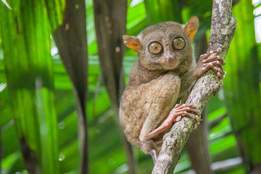: the tendency of an animal to remain in or return to the area of its birth
In many species of animals, individuals directly benefit from living in groups; philopatry (i.e., staying in the natal patch) can be selected for, particularly if local habitats are worth clinging to.— Hanna Kokko and Andrés López-Sepulcre, Science, 11 Aug. 2006
Hanna Kokko and Andrés López-Sepulcre, Science, 11 Aug. 2006 Further, if the habitat is structured, say, a coral reef as opposed to the open sea, the animal will tend to occupy a home range or territory, or at least return to particular places for feeding and refuge (philopatry).— Edward O. Wilson, Sociobiology: The New Synthesis, 1975
Edward O. Wilson, Sociobiology: The New Synthesis, 1975
philopatric
adjective
But there is a minority of species in which males are typically philopatric (living their lives in the group into which they were born) and the females are migratory.
— Craig B. Stanford, The Hunting Apes, 1999
Craig B. Stanford, The Hunting Apes, 1999
In some birds, such as the red-cockaded woodpecker and the Florida scrub jay, philopatric males assist in the rearing of their parents' additional broods.
— Robert E. Ricklefs and Gary L. Miller, Ecology, 2000
Robert E. Ricklefs and Gary L. Miller, Ecology, 2000
Subscribe to America's largest dictionary and get thousands more definitions and advanced search—ad free!
Merriam-Webster unabridged










Share